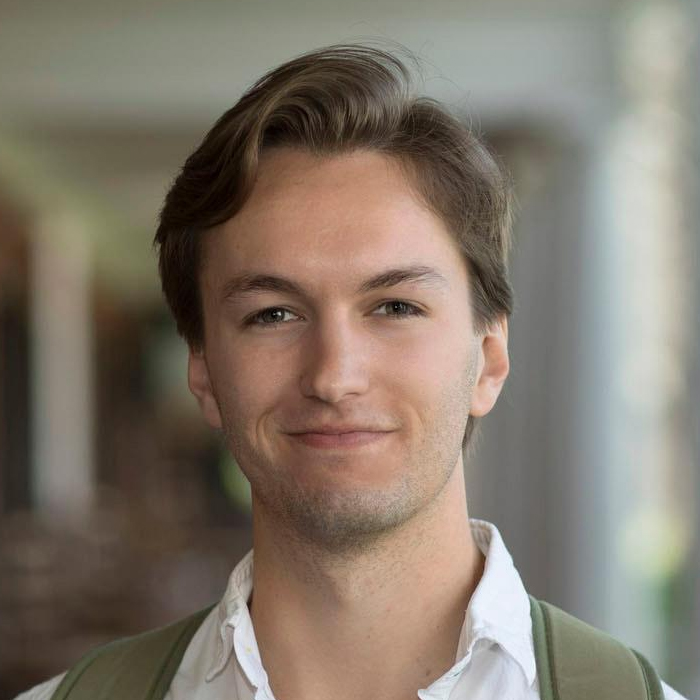From physics to economics, Bohr honed ‘hyper-focus’ as Echols

Clement Bohr (A&S, 2017) arrived at the University of Virginia intending to pursue a demanding double major in physics and economics. He also decided to complete a minor in French, while completing numerous mathematics courses to prepare for graduate school.
“One could say that I did the opposite of what most Echols Scholars do,” Bohr says. “The program enabled me to hyper-focus on my fields of study rather than broaden them. Although one could argue that intensely studying four fields is quite broad.”
The descendant of Nobel Prize winners and physicists Niels and Aage Bohr, Clement Bohr is in his first year of doctoral studies, in economics, at Northwestern University. In a UVA Today profile published last April, Bohr said he strayed from his great-grandfather and great-uncle’s favored discipline for graduate study when he realized that the one part of physics he enjoyed – general relativity – is similar in some ways to his favorite part of economics.
“Essentially, general relativity describes how the whole universe works,” Bohr told UVA Today. “It looks at the bigger picture, and that’s what you do in macroeconomics. I like subdivisions of macroeconomics that allow you to create models and try to figure out how everything works together.”
In graduate school, Bohr is interested in studying international trade and the theories behind large-scale economic forces. While he aspires to one day land a top-level academic appointment, he says that a Ph.D. in economics affords a variety of different career paths. The possibility of working at an international financial institution such as the World Bank or the International Monetary Fund, before returning to academia, also appeals to Bohr.
Professor John Pepper, chair of UVA’s Department of Economics, says two qualities allowed Bohr to excel during his time at UVA.
“First, he is a very creative and deep thinker who goes far beyond the blackboard to carefully consider and study the content, meaning and implications of the ideas developed in class,” Pepper says. “Second, Clement takes risks and seeks out challenging courses, even if that means struggling to learn the material. He is not worried about getting an A.”
Bohr was a member of the Echols Council all four years of his time at UVA; he represented his fellow Echols Scholars as president of the council his fourth year.
"Even before Clement became Echols Council President, he made a significant positive impact on the community by creating the Echols Ambassadors program, in which current Echols Scholars reach out to prospective first-year Scholars and host welcoming events during Days on the Lawn,” says Sarah Cole, assistant director of the Echols Scholars Program. “Four years after Clement started the Ambassadors, the program is still going strong and helping new Echols Scholars to feel at home.
Bohr says the Echols program “undoubtedly introduced me to people who I admire tremendously and who I would never have met through the UVA community otherwise.”
“Some of these people remain my closest friends, and for that I am grateful,” he says. “I do feel a special connection to UVA through the program, as it did shape part of my time there.”
